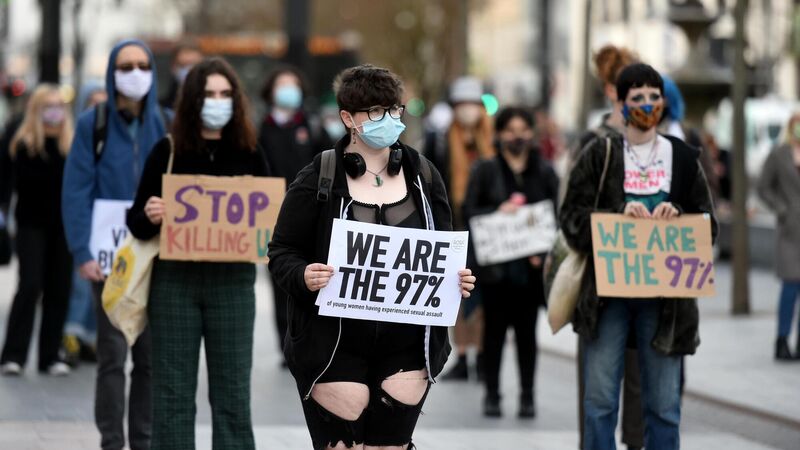'We are all Sarah': People across the country stand together to oppose gender-based violence

The socially distanced group at the Grand Parade, Cork City, one of many protests organised in Irish cities following Sarah Everard's murder. Picture: Larry Cummins
“Even my dog understands when I say ‘no’” was one of the many brightly painted signs brought to a protest in Cork as people stood against gender-based violence.
About 100 masked people gathered on Grand Parade, standing on ‘X’s carefully marked out in chalk to maintain social distancing.












